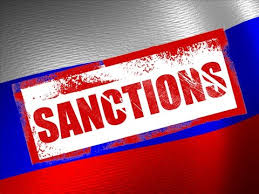 The State Department shuttered an office that oversees sanctions policy, even as the Donald Trump administration faces criticism from lawmakers over its handling of new economic penalties against Russia.
The State Department shuttered an office that oversees sanctions policy, even as the Donald Trump administration faces criticism from lawmakers over its handling of new economic penalties against Russia.
Secretary of State Rex Tillerson eliminated the Coordinator for Sanctions Policy office, which had been led by a veteran ambassador-rank diplomat with at least five staff, as part of an overhaul of the department, former diplomats and congressional sources told Foreign Policy. Instead, the role of coordinating U.S. sanctions across the State Department and other government agencies now falls to just one mid-level official — David Tessler, the deputy director of the Policy Planning Office. The Policy Planning Office, which previously operated as a small team providing strategic advice to the secretary but did not manage programs or initiatives, has grown in power under Tillerson’s “redesign” of the department.
The sanctions office was dissolved after the administration missed a key Oct. 1 deadline to implement new penalties against Russia adopted by Congress in August. The move has reinforced concerns among both Democratic and Republican lawmakers that the Trump White House is mismanaging the State Department and undercutting the role of U.S. diplomacy.
The “elimination of the sanctions coordinator appears to be part of the larger reorganization debacle underway at the State Department,” said Sean Bartlett, spokesman for Sen. Ben Cardin (D-Md.), ranking member of the Senate Foreign Relations Committee.
The State Department declined to comment.
Both Cardin and Republican Sen. Bob Corker (Tenn.), chairman of the Senate Foreign Relations Committee, had blasted the administration over its failure to implement new sanctions against Russia enacted by Congress. After blowing past the Oct. 1 deadline, the administration informed Corker on Thursday that it would finally issue guidance for the measures, identifying entities linked to Russia’s defense and intelligence sectors.
Former officials and experts are torn on whether or not eliminating the Coordinator for Sanctions Policy office will undercut the State Department’s ability to oversee sanctions. Sanctions have become a cornerstone of U.S. foreign policy toward adversaries such as Iran and North Korea.
Daniel Fried, a now-retired career diplomat who served as the coordinator for sanctions policy through February 2017, cautioned against misinterpreting the move.
“You can’t read into that a lack of commitment to sanctions,” he told FP, adding as long as State devotes staff to the issue, their title or bureaucratic placement in the department wasn’t important. “It’s not as if [the administration] is gutting sanctions altogether.”
Other former officials said scrapping the office and putting the job on the shoulders of only one policy planning official was a mistake, particularly at a time when the administration seems to be struggling to manage an array of foreign-policy issues and to articulate its stance.
“They messed up on this. They scrapped this when they could’ve taken it further,” said a former State Department official. “They said, ‘We’re just going to back to the point where there’s no clear coordination.’”
Another former government official familiar with sanctions said, without the office, there’s a danger of bureaucratic turf battles cropping up inside the State Department and with other agencies on sanctions. “This could be a real problem,” the former official said.
The Treasury Department takes the lead on the technical aspect of sanctions, but implementing punitive measures requires elaborate coordination with allies, particularly the European Union, to build diplomatic support and to ensure a unified approach. As a result, the State Department plays a crucial role in making sanctions effective.
As secretary of state under the Obama administration, Hillary Clinton created the coordinator for sanctions policy role. Fried said during his tenure, the office worked hand in glove with Treasury to carry out tasks such as working with Asian allies to push North Korea sanctions and identifying individual Russians trying to evade targeted U.S. sanctions.
The office kept the trains running on time, said Edward Fishman, a former sanctions policy official in the Obama administration. But for State to pack the biggest punch on sanctions, it needs a full-fledged and permanent bureau to coordinate sanctions issues, he said. Sanctions issues are currently scattered across a slew of offices including the Burea of Economic and Business Affairs, the International Security and Nonproliferation Bureau, and the Bureau of International Organization Affairs.
The move also highlights the growing influence of the Policy Planning Office under Tillerson. Some State Department employees and lawmakers have widely criticized Tillerson for expanding the office, historically used as an in-house think tank for long-term strategic issues and speechwriting. Under Tillerson, it’s grown in scope and influence, prompting concern he’s creating what one senior State Department official described as a “miniature fiefdom” to sidestep the wider department and legislative oversight.
The move, critics say, both cuts off department-wide input on key policy decisions and bottlenecks the department’s overall work as policy planning staff are stretched to the brink with an array of new responsibilities.
Sanctions have become a pillar of U.S. foreign policy, and the Trump administration has touted them as a pivotal tool to counter regimes in North Korea and Iran. Wherever sanctions policy is managed inside Foggy Bottom, the State Department has a pivotal role in determining whether sanctions actually work.
“You can churn out all the sanctions you want,” Fishman said. “But if you don’t have diplomats around the world pounding the pavement every day to get allies on board, they won’t be effective.”
FP

Leave a Reply
You must be logged in to post a comment.